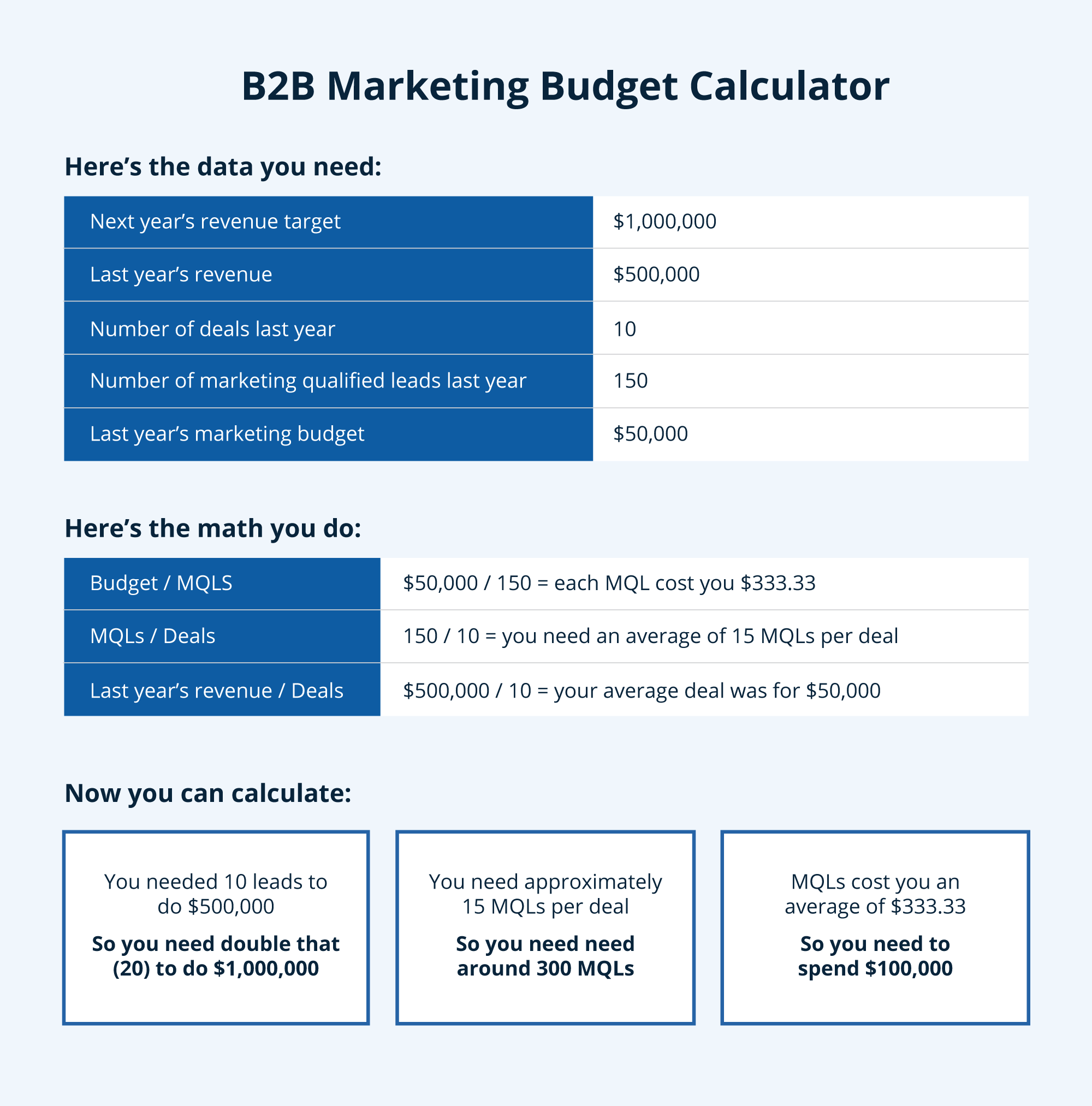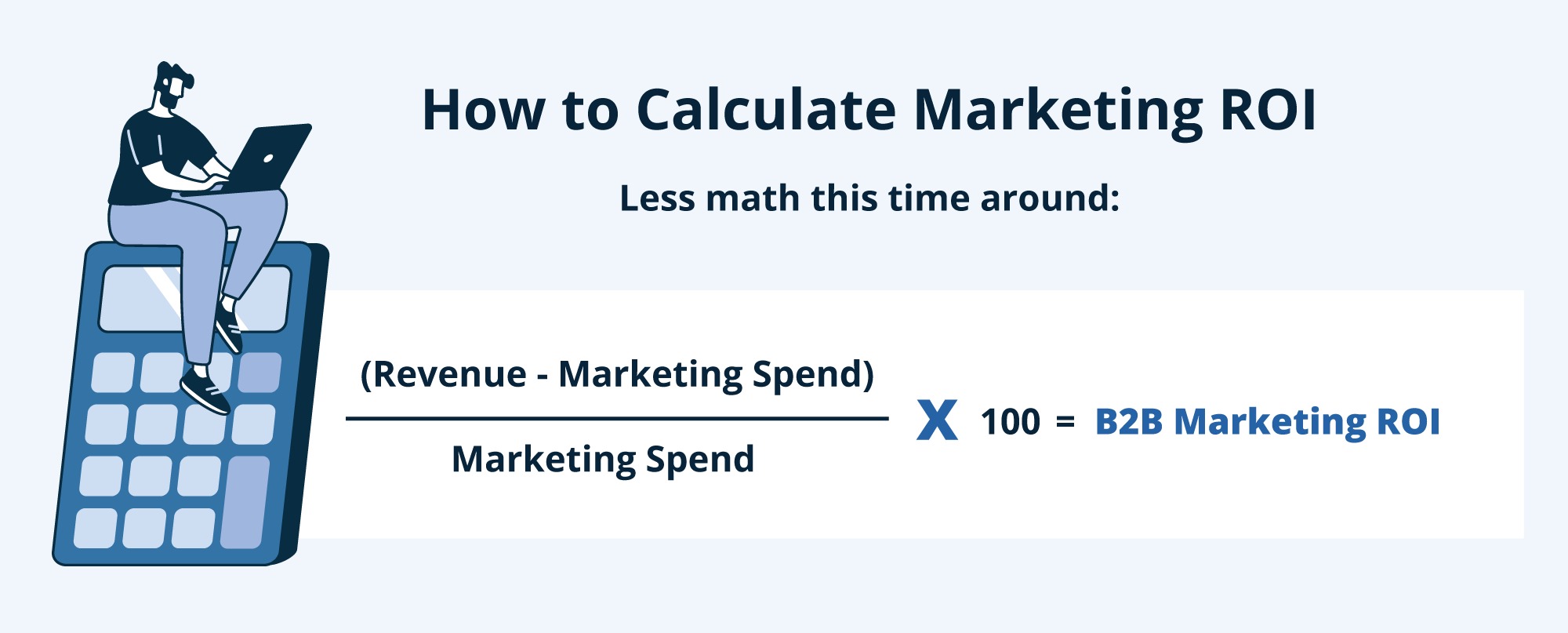Marketing is critical to growing your B2B business — but finding the money to develop and execute an effective strategy isn’t always easy. It seems like budgets are continually tightening while demands increase. New and established organizations alike struggle to allocate resources stretched thin between development, operations, and sales and marketing teams.
When the fight for funding ends, marketing often gets the short end of the stick. After all, there will be nothing to market if the development and operations team don’t have enough budget. But investment in your B2B marketing strategy is vital to your company’s success. So what determines how to allocate budget for digital marketing — and how do you make a case for that investment to other stakeholders?
How to Calculate Your Marketing Budget
There is no magic number that tells B2B marketing teams what to spend. Obviously, how much you allocate to engaging and educating your audience will depend on the size of your organization and the resources at your disposal.
But even trying to determine what percentage of your budget should go to marketing can be confusing.
- Last year, Gartner said the average marketing spend across all industries was between 6.4% and 9.5% of company revenue
- Deloitte’s Annual CMO Survey suggests marketing budgets will account for around 13.6% of total spending in 2023
- Here at TPM, we’ve seen marketing budgets range anywhere from 4% to 15% of clients’ budgets
Taking a step back from developing and executing campaigns to build out a B2B marketing budget can seem like a pain. Still, unless you have infinite resources to dedicate to capturing Marketing Qualified Leads, there’s no way around it.
3 Steps to Set Your Budget
So how to establish a marketing budget? Fortunately, the data you need is readily available. Ask yourself these three simple questions to establish a baseline for how much marketing spend you need:
- What are your company’s revenue targets for the year?
- How many MQLS do you need to hit those targets, based on previous years?
- How much will each MQL cost you?

Obviously, these are numbers made up to make the math pretty simple, and there’s no guarantee your cost per MQL will stay the same. But this gives you a starting point for reverse-engineering a reasonable budget.
What If You Don’t Have That Data?
The marketing budget calculator above makes allocating your spend simple if you have data on revenue and marketing efforts in previous years. But figuring out how to establish a marketing budget in your first year of business can be a little more tricky, since you don’t know what your cost per MQL is yet.
In this case, experts at Gartner recommend new companies allocate approximately 11% of their gross revenue (or gross projected revenue) to marketing.

How to Allocate Your B2B Marketing Budget
Setting your digital marketing budget is only the first step, of course. Now you must allocate that budget based on your B2B marketing strategy. (If you don’t have one in place, stop right here. Effective and efficient division of your budget is contingent on a well-developed strategy.)
Every B2B company should begin with a customized marketing plan based on market position and differentiation to drive growth. Only then can you effectively and efficiently divide a budget to help realize your goals.
Looking back at historic data, examine what your business needs to invest in to ensure you’re reaching your target audience:
- Developing a strategy
- Building or strengthening your brand reputation
- Improving website SEO to attract organic traffic
- Creating content that establishes you as an industry leader
- Using email or social media to drive traffic
- Leveraging paid advertisements
- Participating in trade shows
- Ensuring your marketing and sales teams are aligned
Some of these needs will require more significant investments than others — budget allocation must be based on potential impact. Consider how you’ve successfully reached prospects in the past and where you might be wasting money. Regardless of how your B2B marketing budget breaks down, don’t fall into the trap of viewing marketing as an expense. Marketing must be treated as an investment that will deliver a measurable return over time.
Making a Case for Marketing Spend
The importance of treating B2B marketing like an investment rather than an expense brings us to the next stage of the marketing budget process — making a case for the figure and allocation you’ve come up with.
If you’re part of a marketing team at a large B2B enterprise, you’ll probably find yourself trying to justify your proposed budget to C-level executives. On the other hand, if you’re a small tech startup, you may just need to reassure yourself that you do, indeed, need to spend that much on marketing.
You can’t manage what you don’t measure. Your marketing strategy must be driven by data, not “the way you’ve always done things” or the approach that worked for your competitor. Hopefully, you’ve already deployed some analytics tools to tell you where traffic is coming from. (If not, go back to the strategy development stage — you’re not finished there yet.)

Calculating B2B Marketing ROI
Open up your analytics dashboard and dig into the data. Where are your leads coming from? Is the bulk of your traffic organic or paid? People already familiar with your company or strangers who find you through a Google search?
Depending on the size and scope of your marketing efforts, you can break down ROI by tactic to see what approaches yield the best returns, or you can simply calculate the returns on your B2B marketing budget as a whole.

Do Your B2B Marketing Efforts Need Work?
At TPM, we specialize in B2B marketing for tech companies of all shapes and sizes. We can help you develop a strategy, build campaigns that bring your ideas to life, and, yes, even make the case to company stakeholders for why your digital marketing budget is the key to your company’s success. Contact us today to discuss how we can help boost your B2B marketing efforts.



